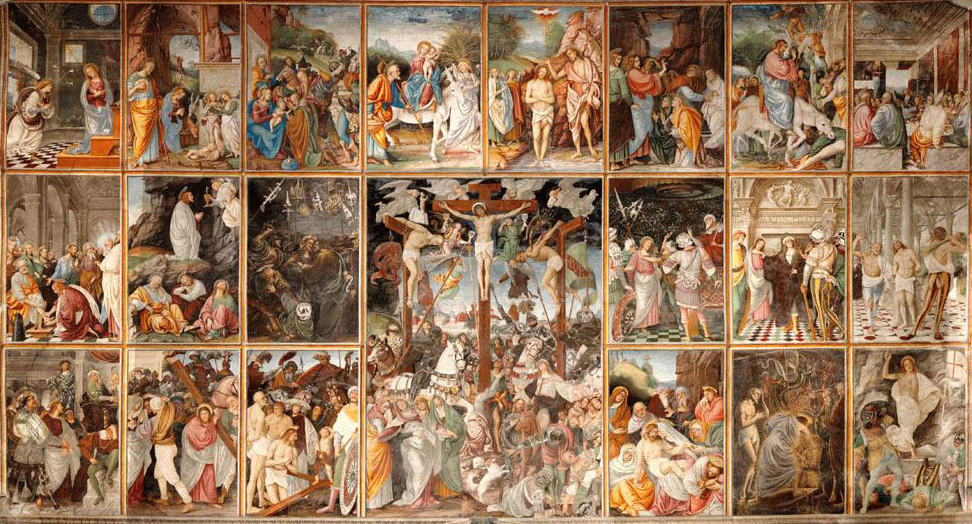From his Passion a new civilization would arise.
This is the week when we remember Jesus’ suffering and death. It is our custom to call these events his “Passion.”
How odd it is for us to use the word “passion” that way. In popular songs it almost always means romantic love. In everyday speech, we might also apply it to anger. When the tabloids speak of “crimes of passion,” they mean acts fueled by both love and rage.
All these senses of “passion” have something in common. They’re about things that happen to us — and are beyond our control. When anger or love takes possession of us, our mind and will grow weak. We suffer the effects. We endure what we must.
In a similar way we suffer pain or an illness. It overtakes us. We do what we can to stop it, but we face certain limitations. What we cannot cure or control, we suffer through.
Passion, in this sense, is something that must be endured. The philosopher Peter Kreeft said the essence of suffering is “not my will.”
So this is Holy Week, the yearly memorial of Jesus’ Passion, his suffering, and the readings this week set up the terms of the drama. They present Our Lord as an innocent man, characterized by gentleness, whose goodness seems to provoke people who are inclined to evil.
The Prophet Isaiah, writing centuries before the Messiah was born, foresaw him as someone “not crying out, not shouting, not making his voice heard in the street. A bruised reed he shall not break, and a smoldering wick he shall not quench.”
And it proved true. Jesus posed no credible threat to anyone. Yet in yesterday’s Gospel we see him suffer. He endures an unjust reproach from one of his disciples — a thief named Judas.
Jesus was the soul of kindness, the soul of gentleness. Yet he would, in time, upset the entire world order. Through his suffering, he would turn all worldly values on their head.
From his Passion a new civilization would arise. Martyrs would build it — men and women who suffered as Jesus did — who gave their lives in love. They would introduce the world to revolutionary ideas: human dignity, human rights, the equality of women. They would establish institutions that had never existed before: the hospital, the orphanage, the hospice, the hostel, and the university.
They were meek, those Christians, like their Master. But by their meekness they would inherit the earth. They were the first to conquer the world not by force of violence, but by the persuasive power of love, proven in suffering.
Pay close attention to the readings during Holy Week. They reveal Jesus as he endured the violence of sin — as he suffered from actions that were not his will.
By such Passion he prevailed. By laying down his life he gained everything, not for himself, but for those he loved. For you and me.
From him, this week, we learn the only way forward. We need to be like him in his Passion. St. Paul said: “For the sake of Christ, then, I am content with weaknesses, insults, hardships, persecutions, and calamities; for when I am weak, then I am strong” (2 Corinthians 12:10).

